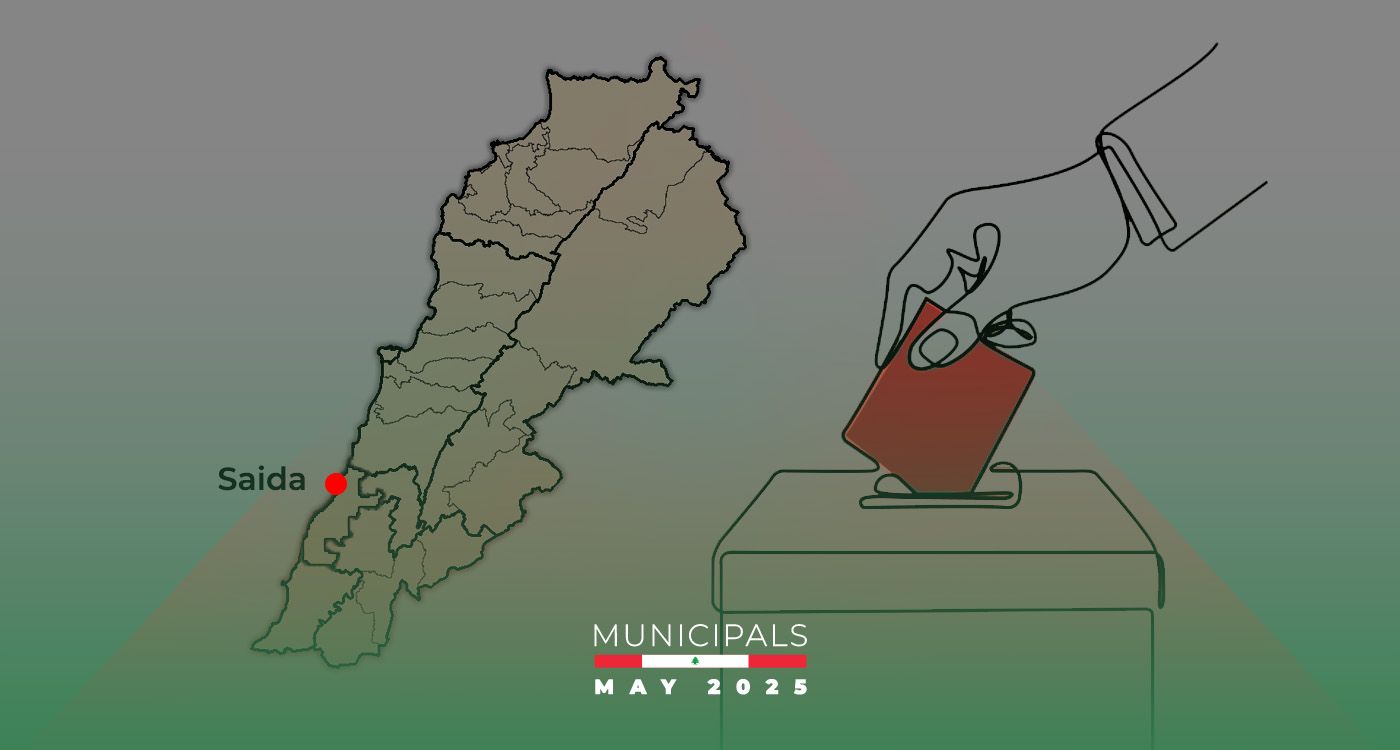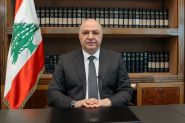
As the fourth and final phase of Lebanon’s municipal and mukhtar elections approaches, the southern city of Saida stands at a pivotal moment in its political history.
Scheduled for Saturday, May 24, the elections come after intensive administrative and security preparations led by Minister of Interior and Municipalities Ahmad al-Hajjar. His recent visit to the South included security council meetings in both the South Lebanon and Nabatiyeh governorates to ensure a safe and smooth voting process.
In Saida, the municipal race has drawn unusual attention this year due to the retreat of traditional political parties from directly fielding candidates. This has opened the door for a new generation of civic-minded individuals—including women and youth—to enter the scene, many of them professionals such as engineers, doctors, lawyers and educators.
While this development has injected fresh energy into the political landscape, it has also fragmented the electorate and sparked competition even within prominent families, as multiple members have entered the race on opposing lists.
A Crowded Field with Five Major Electoral Lists
As of May 22, a total of 96 candidates are vying for 21 municipal seats, with 58 others competing for 22 mukhtar positions. The electorate stands at nearly 69,400 registered voters, including 59,333 Sunnis, 6,373 Shias and 3,616 Christians.
The municipal race in Saida features five key electoral lists—each representing a different vision for the city’s future:
Saida Bada W Nehna Adda
Led by pharmacist Omar Marjan, this list brings together candidates from diverse Sidonian families and includes veteran municipal figure engineer Mohammad el-Baba. Despite Marjan’s insistence on the list’s independence, reports suggest quiet support from MP Dr. Abdel Rahman el-Bizri and possibly MP Fouad Makhzoumi. The campaign is noted for its high visibility, heavy spending on advertisements and grassroots backing from local families and civil society groups.
Saida Btestahel
Backed by the Islamic Group (Al-Jamaa Al-Islamiya) and featuring 16 candidates, this list is participating independently for the first time after failed alliance talks—most notably with Omar Marjan’s team. Despite its lack of a head candidate, it is supported by various civil society members and family groups, though its demands for key positions like deputy mayor were rejected by other factions.
Sawa Li Saida
Headed by engineer Mustafa Hijazi, a former municipal council member, this 21-candidate list is widely seen as a continuation of the current council. While former MP Bahia Hariri denies endorsing any list—aligning with former PM Saad Hariri’s decision for the Future Movement to remain on the sidelines—many speculate that “Sawa for Saida” enjoys indirect support from Hariri loyalists. It is officially backed by former mayor Mohammad el-Saudi, who nominated Ahmad Chouaib, and businessman Mar’i Abu Mar’i, who appointed his son-in-law Dr. Ahmad Akra as deputy head.
Nabad El-Balad
Led by engineer Mohammad Dandachli, this 21-member list is supported by MP Osama Saad, the “Raise Your Voice” coalition, the October 17 protest movement and the Engineers’ Coalition of Saida and Surroundings. Though none of the candidates officially belongs to Saad’s Popular Nasserist Organization, the list strongly reflects his political vision.
Saida Tastahek
Led by engineer Mazen el-Bizri, this list includes seven candidates and emerged following unsuccessful efforts to unify candidates across political and civic lines. Announced just four days before election day, the list calls for a council based on inclusivity, transparency and collaboration. Bizri urged citizens to support and help complete the list, which he described as a foundation for meaningful municipal reform.
Independent Candidates and Unsettled Alliances
In addition to the five main lists, several independent candidates are still in the race. The deadline for withdrawal has been extended to midnight on Friday, May 23, allowing for last-minute adjustments and potential dropouts.
One wildcard in the election remains the Shia vote. While the Hezbollah–Amal alliance has not formally endorsed a list, speculation points toward discreet support for Omar Marjan’s team, which includes two candidates reportedly close to the Shia duo.
A Turning Point for Saida?
While the high number of candidates and competing lists may dilute the electoral outcome—making it unlikely for any single list to sweep all 21 seats—this election is nonetheless seen as a critical turning point. It offers a rare chance to address Saida’s chronic municipal issues, many of which predate the financial crisis and stem from decades of poor governance, flawed planning and political dependency.
The surge in youth and women’s participation is a notable shift, breaking the long-standing tradition of municipal seats being monopolized by entrenched political elites. However, this wave of new candidates faces criticism for lacking concrete and actionable plans to address the city's complex problems, from infrastructure decay to urban overcrowding and administrative inefficiency.
Lots of citizens have called for improvements regarding landfills, lighting and the enhancement of tourism through events and sports activities.
The Stakes Ahead
As Saida enters this final stretch before election day, the city is abuzz with campaign activities, town halls and mounting voter interest. Posters and slogans have taken over public spaces, and candidates are making their final pitches.
No matter the outcome, Saturday’s vote may redefine Saida’s local governance, not just in terms of who holds office, but in the kind of politics the city chooses to embrace—traditional alliances and family ties or a new civic path powered by transparency, inclusiveness and local engagement.
Whatever happens, Saida will speak loudly on May 24—and the echoes of its choice may well shape its future for years to come.




Comments